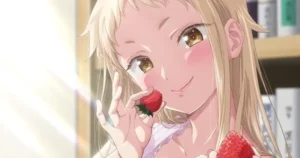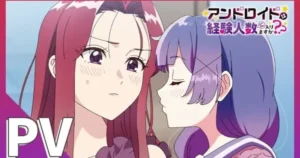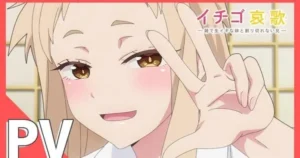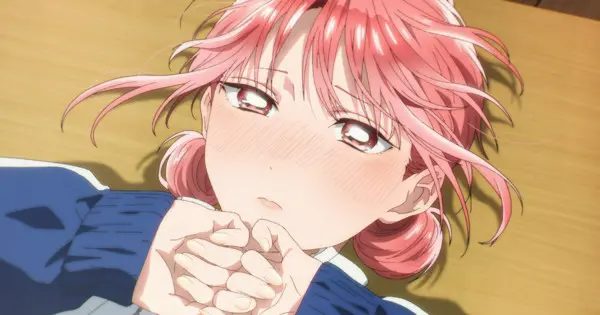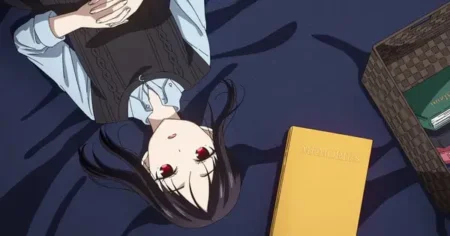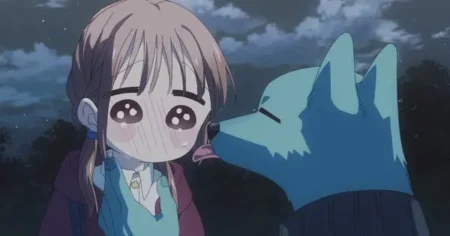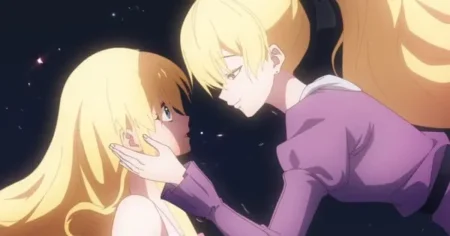Episode 17 of Blue Box, titled “Of Course I Want to See It,” continues to navigate the complex emotions of its characters as they balance their athletic dreams with burgeoning romantic feelings. The episode expertly portrays the simmering tensions within the central love triangle of Taiki, Chinatsu, and Hina, utilizing subtle animation, pacing, and sharp writing. However, some critics suggest the episode feels somewhat cyclical, particularly regarding Taiki’s self-doubt and Hina’s unreciprocated feelings, creating a sense of stagnation.
Taiki’s Persistent Malaise and Athletic Growth
A significant portion of Episode 17 focuses on Taiki’s internal struggles as he grapples with his perceived lack of progress in badminton. Despite the encouragement from those around him, he remains fixated on the distance he has yet to travel to achieve his goals. The news of an upcoming practice match against a rival high school, where he is expected to face Yusa, a previous opponent who defeated him, exacerbates his nerves and intensifies his feelings of inadequacy.
- Self-Doubt: Taiki’s inability to acknowledge his progress creates a recurring cycle of self-doubt, hindering his ability to appreciate his achievements.
- Practice Match Pressure: The impending match against Yusa amplifies Taiki’s anxiety, casting a shadow over his training and fueling his feelings of being stuck.
- Growth Correlation: The episode cleverly illustrates how Taiki’s athletic growth is directly linked to his emotional state, showcasing the interplay between his personal feelings and performance on the court.
Despite his mental roadblocks, the animation during Taiki’s practice sessions is fluid and crisp, effectively highlighting his physical improvements as an athlete. This visual representation subtly contrasts with his internal monologue, creating a compelling depiction of his internal conflict.
Hina’s Confession and Chinatsu’s Dilemma
Episode 16 ended with Hina’s open confession of her feelings for Taiki to Chinatsu, and the repercussions of this confession are explored in Episode 17. While some viewers might have anticipated more immediate drama, the episode opts for a more nuanced approach, focusing on the quiet introspection of the characters.
- Quiet Introspection: Chinatsu is left to contemplate her future with Taiki, especially in light of Hina’s revealed feelings.
- Awkward Encounters: Hina’s continued pursuit of Taiki creates several awkward moments, highlighting the tension and imbalance within their dynamic.
- Missed Opportunity?: Some critics argue that Hina’s persistence, despite Taiki’s lack of reciprocation, weakens the plot and makes her character less likable. Others suggest the episode missed an opportunity to resolve the “will they/won’t they” dynamic between Taiki and Hina, potentially solidifying Taiki’s feelings for Chinatsu.
One particularly powerful scene involves Chinatsu silently leaning against a copying machine, contemplating the possibilities of a future with Taiki. This moment encapsulates the show’s signature style of conveying deep emotions through subtle gestures and expressions.
The Significance of “Seeing It”
The episode’s title, “Of Course I Want to See It,” refers to multiple desires and perspectives within the narrative. It alludes to the characters’ individual aspirations and the things they long to witness or experience.
- Taiki’s Vision: Taiki wants to witness his own progress and success in badminton.
- Hina’s Desire: Hina wants Taiki to acknowledge and reciprocate her romantic feelings.
- Chinatsu’s Consideration: Chinatsu is contemplating what future she might possibly have with Taiki.
Taiki’s offer to help Hina rehearse lines for the school play, a romantic fairytale where she plays Cinderella, further underscores the theme of “seeing it.” His naiveté in this situation highlights his obliviousness to the potential implications of his actions.
Overall Impression and Criticisms
While Blue Box Episode 17 maintains the series’ strengths in depicting realistic character emotions and relationship dynamics, some critics argue that it falls into a repetitive pattern. Taiki’s persistent self-doubt and Hina’s unyielding pursuit of Taiki, despite his lack of interest, create a sense of stagnation.
- Cyclical Plot: The episode feels stuck in a cycle, failing to deliver substantial progress or lasting impact.
- Lack of Resolution: The missed opportunity to address the romantic tension between Taiki and Hina leaves the plot feeling somewhat unresolved.
Despite these criticisms, the episode’s well-directed scenes, coupled with the subtle animation and sharp writing, continue to make Blue Box a compelling watch for fans of the romcom/sports genre. The series excels at capturing the nuances of teenage emotions and the complexities of navigating love and ambition.
Blue Box: A Blend of Romance and Sport
Blue Box, written and illustrated by Kouji Miura, has garnered attention for its unique blend of the romance and sports genres. Serialized in Weekly Shonen Jump since April 2021, the manga has resonated with readers through its heartfelt depiction of young love and athletic pursuits. The story centers around Taiki Inomata, a dedicated badminton player, and his relationship with Chinatsu Kano, a talented basketball player.
Core Themes
The manga explores several key themes that resonate with its audience:
- Pursuit of Dreams: The characters are driven by their aspirations in sports, showcasing the dedication and hard work required to achieve their goals.
- Young Love: The series delicately portrays the complexities of young love, capturing the awkwardness, excitement, and vulnerability of teenage relationships.
- Coming-of-Age: Blue Box captures the essence of the coming-of-age experience, depicting the characters’ personal growth, self-discovery, and navigation of social connections.
Key Characters
- Taiki Inomata: A passionate and hardworking badminton player who strives to improve his skills and win Chinatsu’s affection.
- Chinatsu Kano: A talented and dedicated basketball player who becomes Taiki’s housemate, leading to a closer relationship.
- Hina Chono: A classmate of Taiki who harbors feelings for him, creating a love triangle dynamic.
Reception
Blue Box has generally received positive reviews, with critics praising its character development, art style, and balance of romance and sports elements. The series has also been recognized for its ability to evoke relatable emotions and create a heartwarming atmosphere. Some critics, however, have noted that the series occasionally relies on overused stereotypes and that the sports aspect becomes secondary in later chapters.
Anime Adaptation
An anime television series adaptation of Blue Box, produced by TMS Entertainment and animated by Telecom Animation Film, premiered in October 2024. The anime is licensed by Netflix and has further expanded the series’ reach and popularity.

